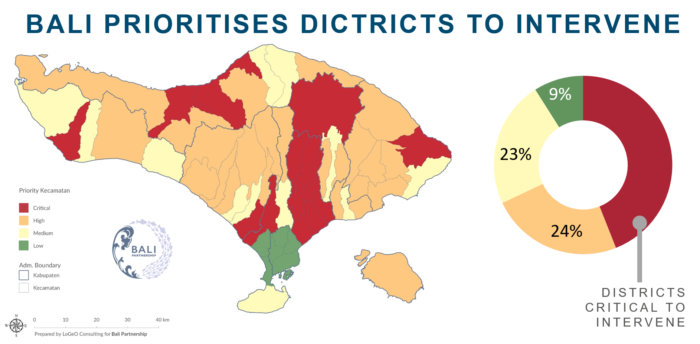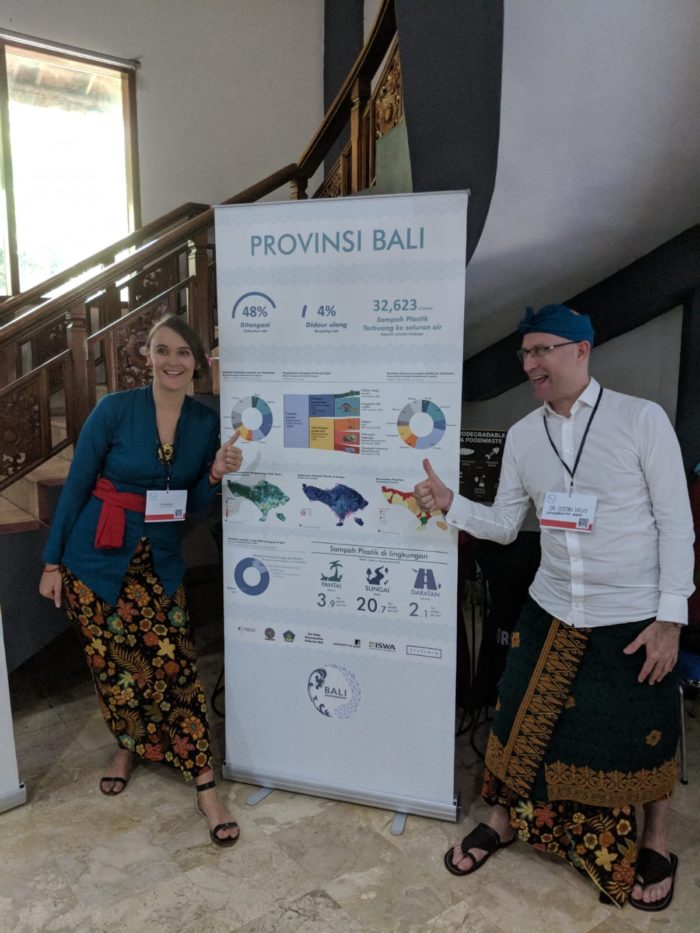The Bali Partnership
The tropical paradise island of Bali, Indonesia and the lush oceans that surround it are increasingly coming under threat. With rapid economic growth and a thriving tourism industry, plastic waste management in Bali is struggling to keep pace. However, buoyed by the ambitious commitment of the Indonesian government to cut ocean plastics by 75%, the University of Leeds joined SYSTEMIQ in the Bali Partnership to find local solutions.
Phase one of the Bali Partnership saw a collaboration between SYSTEMIQ, University of Leeds, the Norwegian Ministry of Foreign Affairs, Bali’s Environment Agency, Udayana University and the International Solid Waste Association (ISWA) come together to perform a baseline study of plastics pollution across the island. Using the ISWA Plastic Pollution Calculator across 57 districts of Bali, Dr Costas Velis’ research team implemented the toolkit and provided scientific support on issues of plastic pollution and solid waste.

Results indicated that 48% of plastic waste in Bali was managed in a controlled manner, ending up either recycled or retained in one of the islands disposal sites. However, 19.6%, equivalent to 33,000 tonnes of plastic waste entered Bali’s waterways every year. The detailed analysis provided by the ISWA Plastic Pollution Calculator found stark contrasts in the locations of this marine litter, largely depending on the waste management characteristics of each district and local meteorological conditions such as rainfall. This enabled high priority areas to be identified so that local targeted interventions can be implemented.


On the landmark application of the Calculator in Bali, Dr. Costas Velis said:
The entire Bali Island is now benefiting from cutting-edge tools to prevent plastics pollution. Our research team, as part of water@leeds, created the Plastics Pollution Calculator, a novel methodology for quantifying sources, pathways and hotspots of plastic pollution, stemming from unmanaged solid waste. In this study, we applied data and systems analytics, arriving to unprecedented opportunities for evidence-based solutions. Knowing where plastics pollution comes from, suitable policy and engineering interventions can be prioritised.
